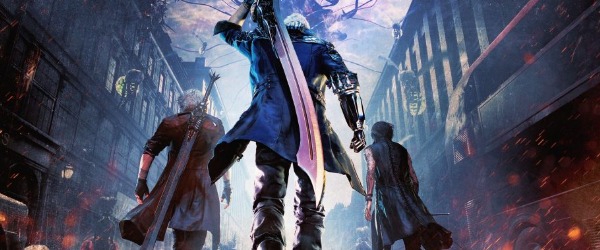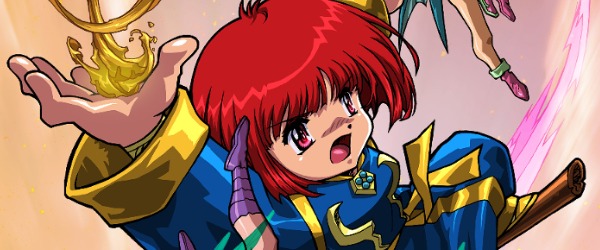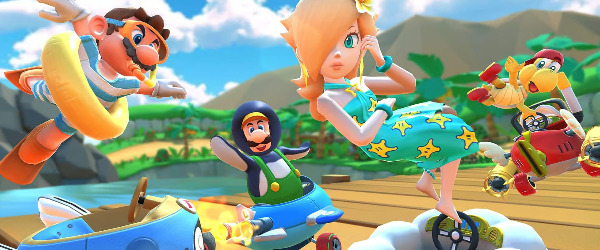
History of Final Fantasy: Into the Unknown (Final Fantasy VIII) - Article
by Taneli Palola , posted on 02 December 2016 / 10,339 ViewsFollowing up on one of the most successful video games of all time isn't an easy task, especially when that game basically introduced a whole genre to a large number of people for the very first time. That was, however, exactly the problem facing Square with Final Fantasy VIII, which rapidly became a hugely anticipated follow-up to the most popular JRPG of all time.
Despite the previous game's massive success, the team behind Final Fantasy VIII once again took chances with the series' direction and experimented with various different elements. It may have been the safer choice to stick as closely as possible to the style of Final Fantasy VII, but the developers clearly had no intention of deviating from the series' tradition of always creating something new for each successive release. However, this time there was the added pressure of living up to the expectations of millions of new fans.
Sorceress of Time: Final Fantasy VIII

Unlike with past iterations in the series, Hironobu Sakaguchi had a very limited role in the development of Final Fantasy VIII (he was focusing his attention on Final Fantasy: Spirits Within at the time). The directing duties were once again taken up by Yoshinori Kitase, who also crafted the game's plot, while the character stories were completed by Tetsuya Nomua and the game's scenario writing was handed over to Kazushige Nojima. Shinhi Hashimoto worked as the game's producer in place of Sakaguchi.
In general, most of the team behind Final Fantasy VII carried over to this project. Tetsuya Nomura once again designed the characters and Yusuke Naora again worked as the art director. In terms of visual design, Final Fantasy VIII was quite a significant departure from previous games in the series, with characters being designed to be realistically proportioned, instead of like the more cartoony, deformed character models used in earlier titles in the series.

Final Fantasy VIII went even further towards realism in its design, employing motion capture, more realistic lighting and shadows, and various elements of the game's world, such as trains and rental cars, were made available for use.
The game's story follows a group of young mercenaries called Seed, initially working to stop a powerful military nation from annexing its surrounding countries, which eventually turns into a conflict against a powerful sorceress. The main character is Squall Leonhart, an extremely gifted warrior and something of a loner, whose natural talents slowly push him towards a leadership position within Seed. Despite his reluctant nature other people eventually come together around him.
In addition, there is a secondary group of playable characters in Final Fantasy VIII led by a character named Laguna. At various points in the game the point of view shifts several years into the past and follows Laguna, Kiros, and Ward, with the reason behind this only becoming apparent much later on. The characters are among the more divisive elements of Final Fantasy VIII, although interestingly the opinion on which of the characters are good and which bad seems to vary greatly from person to person. There doesn't seem to exist any clear consensus on this matter.
In an interesting little fact is that some aspects of the character designs were created well before their stories had been written. One such example is Squall's scar, which Tetsuya Nomura left for Nojima to explain in the storyline.
Character development was actually handled quite differently when compared to Final Fantasy VII. While both games had similarly reserved main protagonists, Final Fantasy VII generally left Cloud's inner thoughts in the dark, while VIII gave very clear insight into Squall's thought processes. This gives a clear contrast between the two, since with Cloud his opinions and thoughts were more implied and up to the player's interpretation, whereas with Squall it was always clear what they were in each situation.

The setting continues the trend that began back in Final Fantasy VI, of having a game world that was increasingly technologically advanced. VII was already based in fairly modern setting, but VIII takes things much further, with numerous futuristic elements and designs to be found in the world. This actually gives a very nice sense of continuation between these entries in the series, with each one progressing further in terms of technology. The setting and technological level also lends itself to some absolutely gorgeous designs.
Final Fantasy VIII's score was naturally composed by Nobuo Uematsu and it is one of his most memorable soundtracks in my opinion, featuring some of the series' best songs. The score itself marked another departure from previous games in the series as character specific themes were excluded altogether because Uematsu felt they did not fit the game's theme and style.
Graphically, Final Fantasy VIII represented a massive leap forward from FF VII, with much higher quality character models, extremely detailed pre-rendered backgrounds with an impressive amount of detail to be found in practically every single scene, and huge improvements in the quality of the game's animated cutscenes. The FMV sequences in particular still look phenomenal today, which is a testament to the care the developers put into creating them. A key reason for this was simply the fact that team was now much more familiar working on 3D graphics, and had a better understanding of the PS1 hardware.
The only graphical aspect that doesn't quite hold up nowadays is the character models; when viewed up close the limitations of the hardware become readily apparent. From a longer distance they still look fine, and the rest of the game is actually quite beautiful still, thanks in large part to strong visual design which gives each new location a unique look and feel. Naora and Nomura did an excellent job designing the game's various locations, taking inspiration from old European cities and also Egyptian architecture.

The gameplay also received a notable overhaul as well. Final Fantasy VIII ditched the materia system from FF VII and implemented a system based on junctioning spells to characters to improve their attributes. The spells themselves are gained by another new addition to the series - the ability to draw spells from enemies and specific draw points scattered throughout the world. The summons, now called Guardian Forces, must also be junctioned to characters, which then give them not only gives access to the summons themselves during battles, but also to the ability to use magic, draw spells, and various other combat abilities.
This junction system is one of the most controversial aspects of Final Fantasy VIII - it is often the subject of equal amounts derision and praise when it comes up. It's a highly flexible system that allows for a huge number of different battle tactics and combinations, but it can also be exploited if one knows the system well. I have personally always liked the junction system, although collecting spells to junction can definitely get a bit trying at times, but that can also be worked around for the most part, as the GFs can learn abilities with which the player can easily refine spells from various items.
In addition, because character stats are increased via the junction system the only equipment found in the game are character weapons - armor and other accessories were dismissed entirely. Another change is the fact that enemies have no set level, but instead their levels and attributes grow alongside the main characters.

The ATB system also makes a return, albeit another set of small tweaks applied to it. The limit breaks now work a bit differently. Instead of a meter that fills as you take damage, the limit breaks now become available when characters reach a critical situation during battle. Basically, the lower their health, the higher the chance of a limit break becoming available. Other changes include magic no longer using MP, but instead characters can stack up to 100 of each spell which can then be used or junctioned to improve the character's stats. Final Fantasy VIII also features one of the series' most famous mini-games in the Triple Triad card game.
Final Fantasy VIII was released on February 11, 1999, in Japan, and then later that same year in the west. As with VII it was an immediate success upon release, selling around 2.5 million copies within four days in Japan and it has since gone on to sell almost 8 million copies worldwide, making it the 3rd best-selling entry in the series. It was also very well received critically at the time and often drew favourable comparisons to its predecessors.
The Best Part

This is quite a difficult choice to make, since practically every aspect of the game has both great strengths and clear weaknesses. The music definitely deserves mention as one of Uematsu's best overall scores. The visual design and FMV cutscenes are excellent too, but ultimately I would still say that the best part of Final Fantasy VIII is the overall plot. It has a very natural sense of progression, with the stakes becoming increasingly higher as the story advances. It also gives all of the characters room to grow and change - each person has a genuine character arc that leaves them in a different place from where they started.
I also really like the subtleties entwined in many of the characters' stories. For example, Laguna is generally shown to be a kindhearted, cheery, and often overconfident man, but in many ways his backstory is the saddest of all the characters in the game, and his feelings are brilliantly conveyed in one very short scene towards the end. It's a brief scene that shows both his past losses and how much he treasured what he had, as well as what he now has in his life and how important these things are to him.
The Worst Part
There isn't really one thing by itself that is the weakest aspect of Final Fantasy VIII. The main issue I personally have with the game is its inconsistency. The plot, the dialogue, the gameplay, and practically all other aspects of the game have some strange dips in quality at certain points that sorely stand out due to the rest of the game's mostly high quality. Perhaps the most aggravating of these is how some of the plot twists come and go with little to no build-up, and as a result they have an almost non-existent impact on the player.
Does Final Fantasy VIII Still Hold Up?

Yes, it does. I know a lot of people will disagree with me when I say this, but Final Fantasy VIII is in my opinion overall a better game than Final Fantasy VII. Not necessarily by any great margin, but I have always found this to be a more enjoyable title and so I have no problem putting the two games on an equal standing in terms of quality. There are definite shortcomings in Final Fantasy VIII, but that's equally true for VII as well.
As I mentioned before, almost every aspect of Final Fantasy VIII can be divided into clear strengths and weaknesses. The junction system is very deep and engaging, but certain aspects of it can be exploited to make the game easier than the developer intended. The ATB battle system continues to evolve and is now more fluid than ever before, but the summoning animations, as impressive as they are, take up a lot of time now. Fortunately the developers added a small gameplay element into them in the form of a boost function that the player can use to increase the GF's damage output during the animation, making the attack animations significantly less tedious even after seeing them dozens of times already.
The story is for the most part very well told and interesting, but also contains some rather obvious plot holes that can hurt the overall experience if you pay attention to them. In addition some of the plot points and twists are not properly built up which means their impact is somewhat diminished. This is compounded by how some apparently Earth-shattering revelations have little to no effect on the game's characters.
Still, in general both the plot and character progression are very well structured. While some of the characters definitely get much more time and opportunities to develop, the differences aren't nearly as massive as they have been in many past titles. Every main character has a purpose and role in the main storyline, which is something neither Final Fantasy VI or VII can say. Naturally, Squall and his change as a person is the main focus, but everyone else gets a chance to shine as well.
Visually Final Fantasy VIII still holds up very well. The backgrounds, animated cutscenes, and overall visual design are all frankly stellar and should be commended. Only the character models significantly show their age when viewed up close. I must also again commend the way the game often seamlessly transitions to and from its FMV sequences thanks to the pre-rendered backgrounds. This trick was first used in FF VII, but it's made to look even smoother here.

Unlike pretty much all previous entries in the series, Final Fantasy VIII hasn't received a large number of re-releases. There's only the original PS1 version (which can be found on PSN) and a questionable PC port that came out in 2000 (although this version has received very positive reviews from users, so perhaps it's worth considering). The Steam release naturally has more features, but the PSN release is closer to the original. Both versions are viable options in any case, although from the few videos I've seen the sound in the PC version doesn't seem to be very good.
There are definitely flaws in Final Fantasy VIII which cannot be overlooked, but each of these is outshone by everything that the game does right. It takes many of the features from past series titles and polishes them even further. Despite the controversial reputation this entry has among many series fans, I find it to be a genuinely great game, and one that I can easily recommend.
Fun Fact
This is the first title in the series to grant each enemy type a specific death animation, instead of them just disappearing upon death. Final Fantasy VIII is also the first - and only - game in the series where the playable characters have pre-battle animations in addition to the familiar victory poses.
Additional sources:
-Wikia
-Weekly Famitsu
-Final Fantasy VIII Ultimania
More Articles
Not much to add to what has already been said. Amazing game, one of my favourite games of all time. Great article, it was nice reading it thoroughly.
I love this game. It pioneered a lot of the elements I love in RPGs, and has one of my favourite stories and cast of characters of any game. Also the music is beautiful and incredibly fitting of the locations, characters, and moments. The biggest disappointment with this game at the time was that it had nothing to do with FF7, most people didn't realize that Final Fantasy games were all self-contained stories; which was a huge shame, it's my favourite RPG of all time.
Best game of the series.
VIII was my first and my favorite Final Fantasy so far, maybe it was because of my age at the time that I felt somehow a connection with the character's feelings, I don't know I just loved everything about it, the music, the FMVs were amazing, there was nothing like it at the time, I loved the intro scene and would start a new game every now and then just to watch it again. Good to know that despite the late criticism it received there's people that still think it is one of the best entries in the series.
One of the greatest games ever made!!!
Final Fantasy VIII is a masterpiece!
One of my favourite FF of all time and hope this gets a full remaster too. Deserves more love than it's given.
One of my all time favourites, I always have a hard time deciding which I like more FF8 or FF7 lol FF9 is obviously number one.
Best game in the series, period!
I loved Final Fantasy 7 and 8 so much as a kid, I also liked 9 but a little less, I replayed 7, 8, 9 and 10 recently, and they all hold up well, great characters, great stories :) I will wait for 12 for the remaster on ps4, but I also like that, the series really lost me with 13 but 15 is a return to form, altough I think all of the PS1 and Ps2 games are better.
A very average FF game back in the day -- quite a good one in retrospect, given how atrocious FF games after X have been.
Always a joy to read your articles!
Thanks. I'm glad you enjoy them.
One of coolest thing in the game was the "lionheart", that even killed a boss;) and watching when squall was destroying the enemies with this special move was a pleasure:)
This is the first final fantasy title I absolutely hated.






















